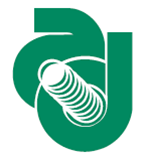Speaker
Description
Large volumes of liquid Argon or Xenon constitute an excellent medium for the detection of Neutrino interactions and for Dark Matter searches. As an alternative or a complement to a Time Projection Chamber type of readout, we explore the use of imaging of the scintillation light to provide information on the event topology and deposited energy.
Designing such an imaging detector presents several challenges: the performance of both photon detectors and conventional optical elements in the deep UV is limited; thousands of photosensor channels in dense matrices must be operated in cryogenic conditions; the optical system must provide a sufficiently wide and deep field of vision to maximize the fiducial volume.
Through the use of Coded Aperture Masks and SiPM matrices, coupled to cryogenic readout ASICs, we have developed a first "camera" with 256 channels. Prototypes have been built and characterized for operations in cryogenic conditions, and a concept demonstrator detector has been assembled.
We developed a custom image reconstruction algorithm to obtain a 3D map of the deposited energy, based on a probabilistic approach. The algorithm is designed to be run on GPUs to provide the required performance, and in simulations with low levels of detected light it improves on the results obtained with traditional deconvolution techniques.
Extensive simulation of the performance of larger cameras and detectors with a larger number of cameras will also be presented.
| Collaboration | PRIN 2017KC8WMB |
|---|

